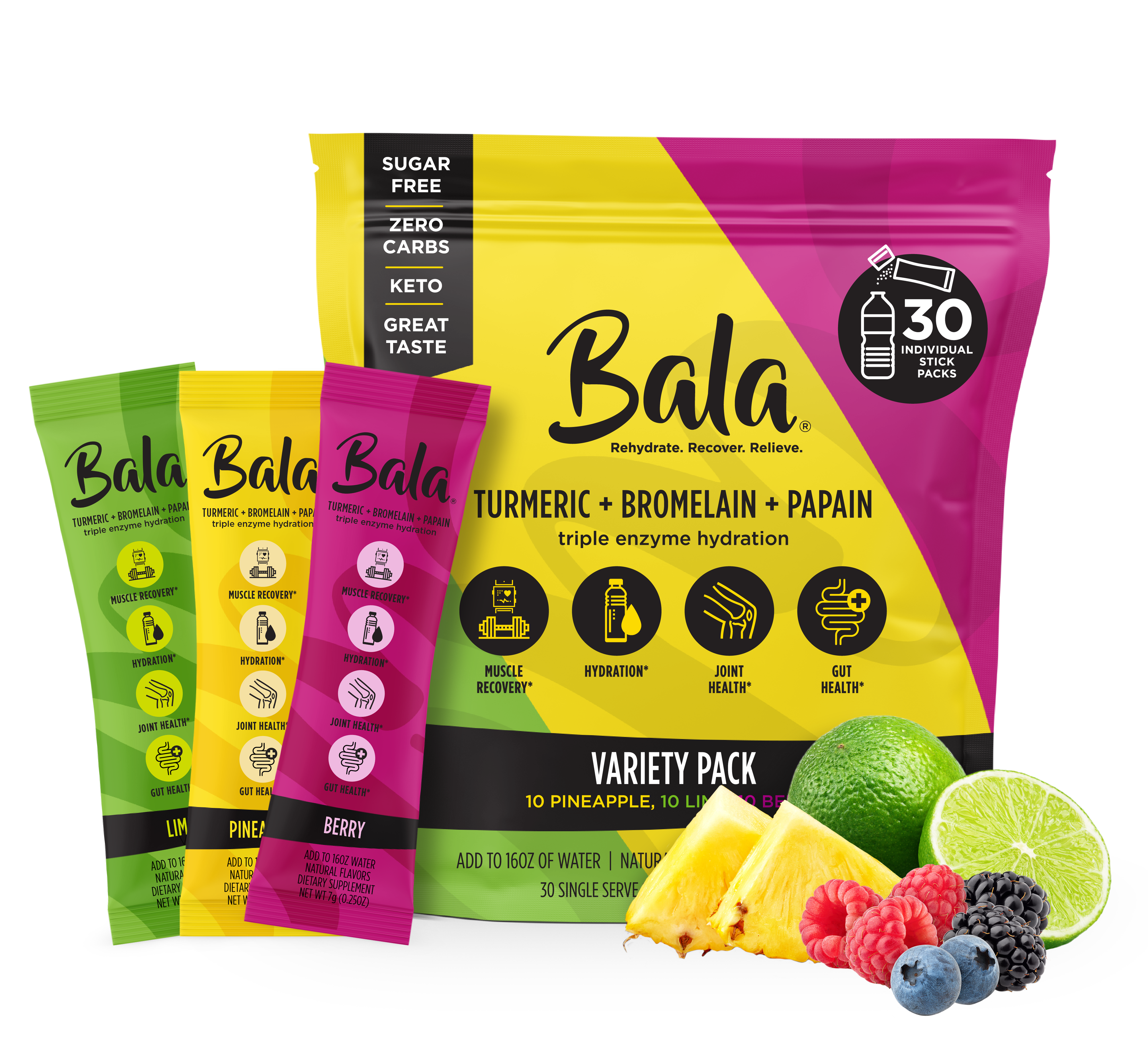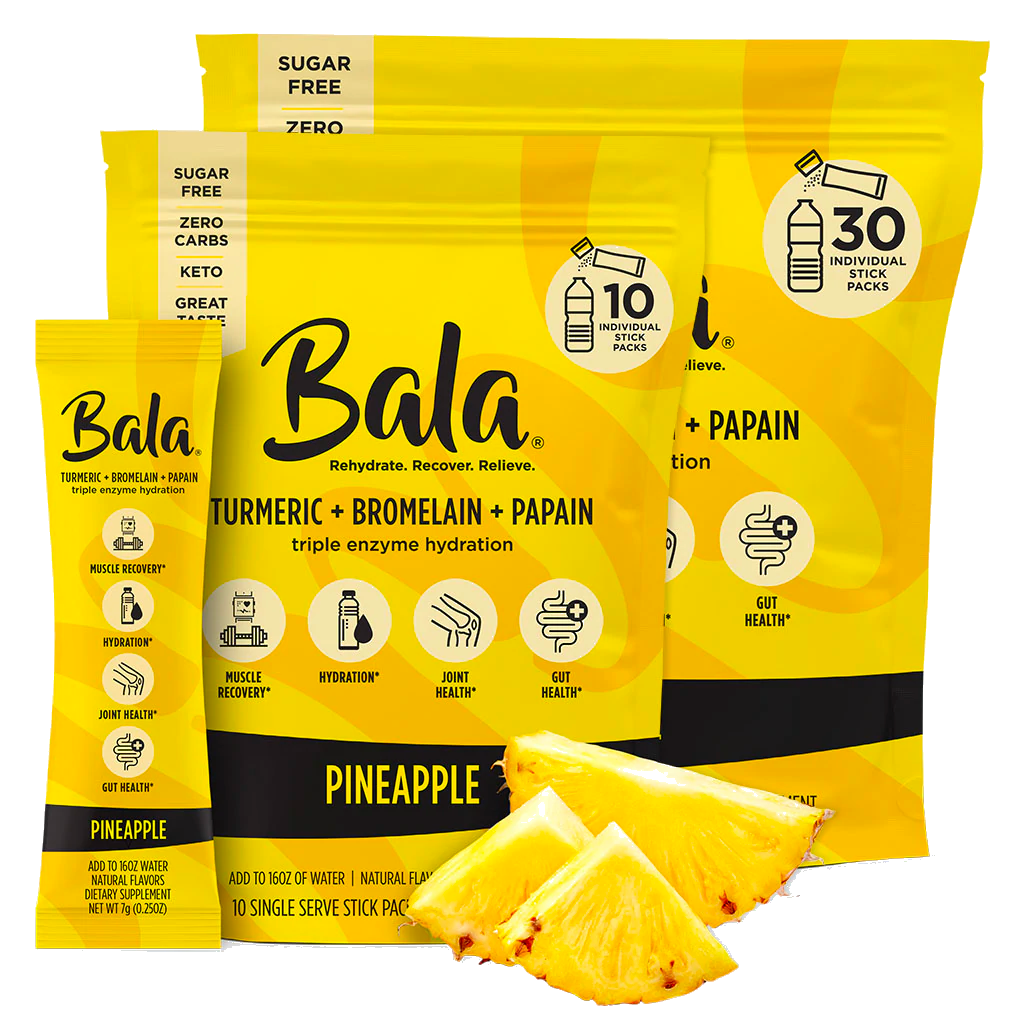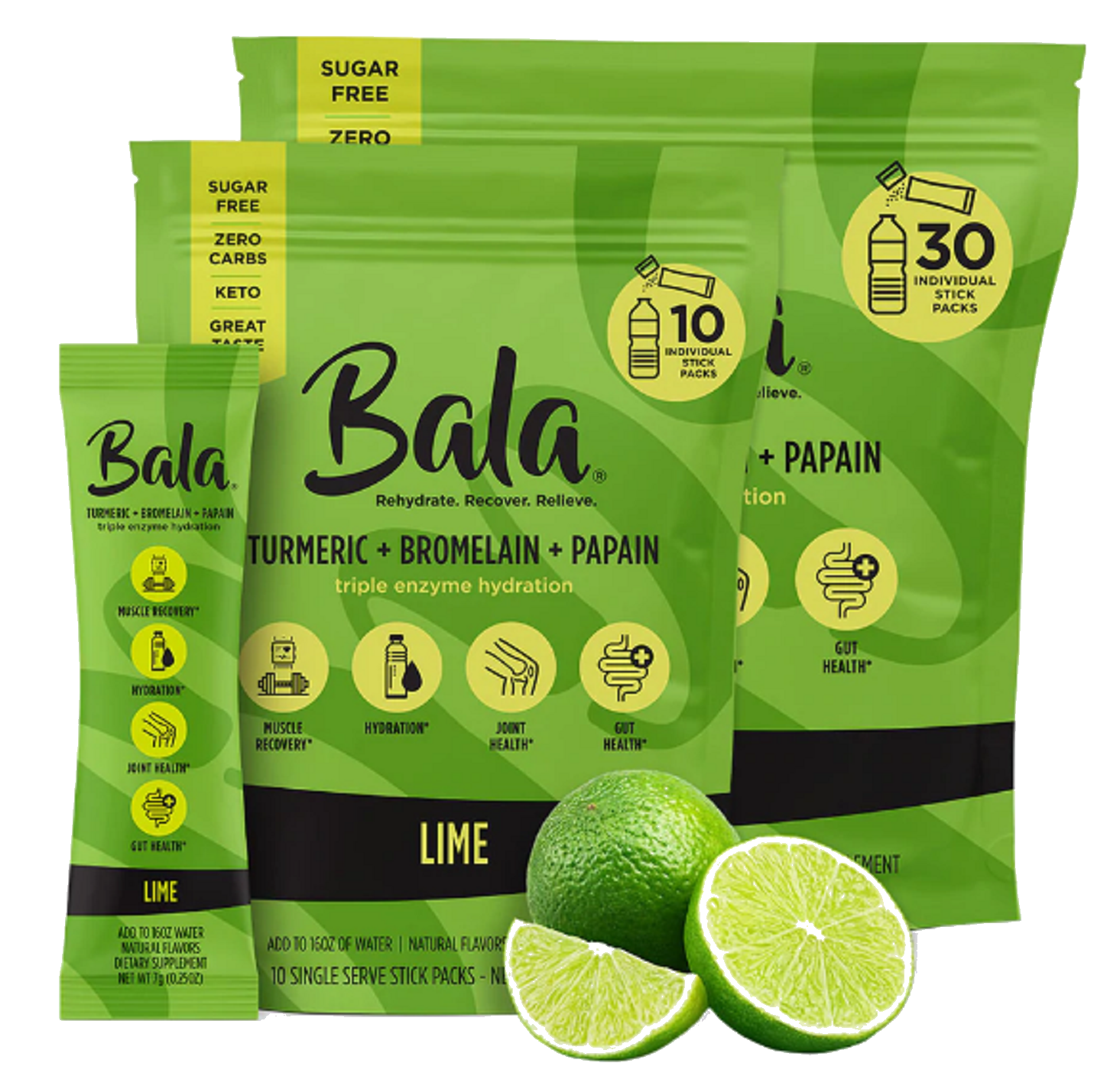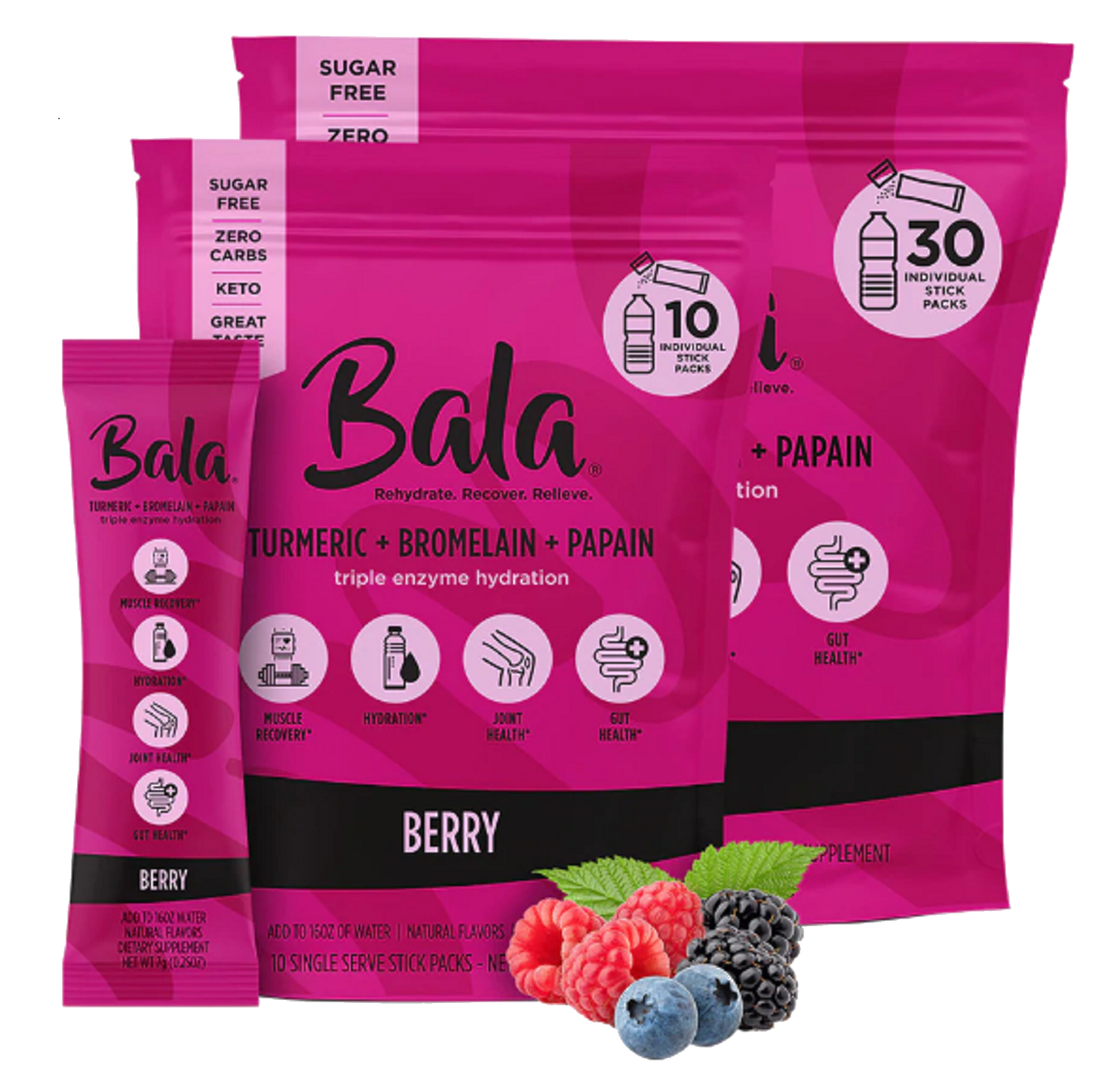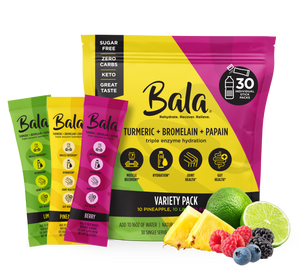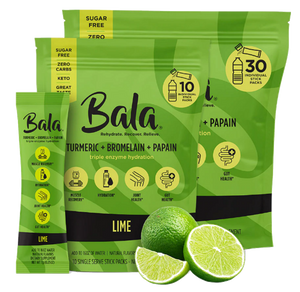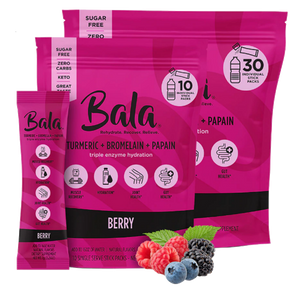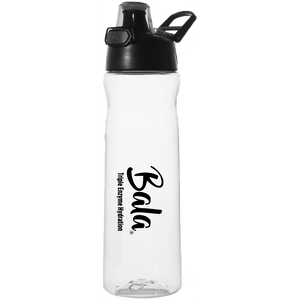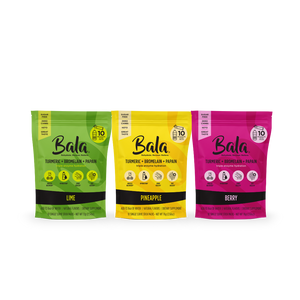Being an athlete is no easy feat. Aside from the rigorous training and exercise that one has to routinely accomplish, an athlete has to be more health-conscious than an average person and pay attention to signs of stress on the body. They heavily invest in their bodies and avoid injury because it is the most important asset for an athlete. A wide variety of health products are currently available in the market in many forms. They all promise to provide you an energy boost and make you feel better than ever. But, do they deliver?
In this article, I will talk about the importance of proper hydration and effective recovery from inflammation. I will also provide some tips for athletes to stay on top of their game. Lastly, I will provide my personal preference for a sports hydration recovery drink called Bala that gives me what I need to stay hydrated and at peak performance every day.
The importance of proper hydration for athletes
Early on, we are all educated that our bodies are mostly made up of water. This fact makes hydration extremely vital for us to maintain normal body processes such as temperature regulation, exchange of nutrients, blood pressure levels, lubrication of joints, and many more.
As athletes work with their bodies, fluid is constantly lost. Through sweating, urinating or in cases of injury, blood loss; water has to be periodically replenished in the right amounts. It is not good to drink too little or too much. Like all things, moderation is a must.


Did you know that you shouldn't drink water only when you are thirsty during your training? It turns out that thirst may be a sign that you are already dehydrated, so make sure to drink before you get thirsty! For athletes, it is recommended to drink before, during, and after a workout.
As the weather gets too hot during summer, we lose more fluid than usual. Short-duration tasks are usually more manageable, but long-duration ones are especially challenging. Dehydration is dangerous. It is the root of many complications and hinders optimal athletic performance. Light headedness, vomiting, muscle cramping, nonexistent sweating, tachycardia or rapid heartbeat, and dry mouth are among the most common signs and symptoms experienced when one lacks fluid. Studies have shown that dehydration increases the risk of fatigue and decreases endurance capacity. This leads to poor performance and may even endanger an athlete's life.
For athletes, joint health is a very important topic that needs attention. For our joints to not cause friction and hurt when doing physical activities, our joints are lubricated. This enables them to remain flexible and minimizes the possibility of gout attacks and all kinds of inflammation. Now let’s talk about inflammation.
How does inflammation affect athletes?
Did you know that inflammation is a normal part of fitness? After intense activity, inflammation kicks in to help your muscles heal so they can adapt and become stronger. This is the good kind of inflammation that an athlete needs to make progress in their fitness. Inflammation is part of your body’s natural healing process and if you don’t generate some form of the inflammatory response during your workout, you haven’t pushed hard enough. Too much inflammation can become an issue and stand in the way of your fitness goals. Muscle and joint inflammation can become a problem that results from too many intense workouts with not enough focus on proper recovery or proper nutrition, and can negatively impact your overall health.
Some athletes may turn to OTC pain relievers, such as ibuprofen, to decrease inflammation and reduce pain, but these drugs have been associated with stomach damage and may impair your body’s ability to recover and get stronger.

Water vs. Sports Drinks
In terms of staying hydrated, a common question is whether it's better to consume water alone or to consume sports drinks. Water is usually the best choice when it comes to short-duration activities as not many electrolytes are lost in that amount of time. However, it becomes a necessity for an athlete to refuel on electrolytes if the exercise lasts for more than one and a half hours, and one hour or less if it’s a high-intensity workout and in hot weather conditions.
Compared to an average person, athletes lose more nutrients and ions in their bodies as they go about their days. Sodium, potassium, calcium, chloride, and magnesium are examples of electrolytes that help athletes perform their best. These positively and negatively charged ions help maintain equilibrium in body functions. It comes and goes with one's water concentration.
Drinking sports drinks is one of the ways an athlete ensures that he or she does not run out of electrolytes. Sports drinks are usually made up of water with electrolytes such as potassium and sodium. They can also contain carbohydrates to replenish our body fuel during intense physical activities. Even with the benefits they offer, many still frown upon sports drinks as some are loaded with sugar, defeating a balanced diet and a healthy lifestyle. However, there are plenty of other healthy options out there that promise to resupply our water and electrolyte needs.
What are Electrolytes?
As previously stated, these positive and negative ions are vital for optimal athletic performance. They are also known as the body's electric tissues. Among the different forms that electrolytes take, the most important are sodium, potassium, and chloride.
The main role of sodium in the body is to regulate extracellular fluid volume as it tries to maintain normal blood pressure and volume. It is also needed for our nerves and muscles to communicate and do their jobs in helping us complete our day to days tasks.
Similar to sodium, potassium also aids in maintaining fluid volume and making sure that our nerves and muscles are contracting properly. It also plays a role in making sure that our hearts are beating properly, and that our kidneys are filtering our blood.
Too many or too few electrolytes pose a problem, just like everything else that is not taken in moderation. To determine if you are having electrolyte imbalance, one must watch out for feelings of exhaustion, sleepiness, headaches, muscle cramping, and confusion or disorientation. You can replenish your electrolyte needs by eating food that has a high mineral count. However, the easiest and fastest way to deliver electrolytes to your body is through drinking electrolytes-infused sports drinks.

What is Bala?
Bala is the first drink of its kind to provide electrolytes and plant-based enzymes that help to reduce inflammation in the muscles and joints. Unlike many sports drinks, it does not contain added sugar and despite being sugar-free Bala does not compromise flavor. What's especially intriguing was also the fact that, unlike other sports drinks, Bala does not only contain electrolytes. The drink is a blend of turmeric (good stuff!), active fruit enzymes, electrolytes, and amino acids.
What are the benefits of Plant-Based Enzymes for an Athlete?
Enzymes are vital for life and serve a wide range of important functions in the body, such as aiding in digestion, hydration, recovery, and metabolism. Bala has 3 key enzymes that help to fortify an athlete’s body after an intense workout.
TURMERIC - Turmeric root, which contains curcumin, is known for its anti-inflammatory benefits, antioxidant properties, and joint support.
BROMELAIN - Enzyme from the pineapple stem aids in anti-inflammation, muscle soreness, and recovery.
PAPAIN - Enzyme from papaya fruit helps aid in anti-inflammation, pain, and digestion.
All of these ingredients make Bala drinks healthier and more appropriate for athletes. They are also gluten-free and can be enjoyed by people undergoing keto diets. Bala comes in three delicious, not too sweet flavors, berry, lime, and pineapple. My favorite is pineapple.
You drink Bala by adding the contents of the packet into your water bottle. Shake until the powder dissolves, and it’s ready!

Final Thoughts
The life of an athlete is filled with harsh training, stressful competitions, and strict diets. To perform our best, we give up a lot of things.
Despite the difficulties, athletes also experience a lot of happiness when participating in our respective sports. We sacrifice so much and train so hard for a moment of glory. As we make our journey in making our names and abilities known, we deserve to be given adequate nutrition with properly balanced diets. One thing that we can never take for granted is our health.
Stay hydrated athletes!
